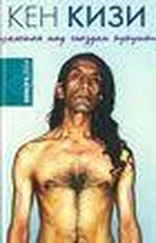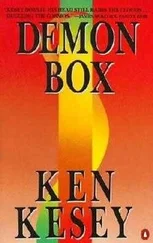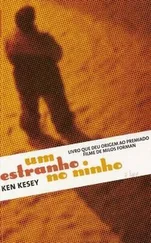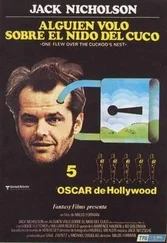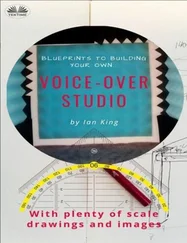“Where do you suppose his parents are?” John asks. “Inside the house? Or out on the falls? We might as well talk this over with the man while we’re out here.”
“I, for one, am not going inside that hovel,” the fat guy says.
“That hovel,” John says through his mustache, “is where the Chief lives, Brickenridge, the man we are here to deal with, the noble leader of these people.”
“Deal with? Not me, not my job. They pay me to appraise, not fraternize.”
This gets a laugh out of John.
“Yes, that’s true. But someone should inform them of the government’s plans.”
“If they don’t already know, they’ll know soon enough.”
“It would be very simple to go in and talk with him.”
“Inside in that squalor? Why, I’ll just bet you anything that place is acrawl with black widows. They say these ‘dobe shacks always house a regular civilization in the walls between the sods. And hot , lord-a-mercy, I hope to tell you. I’ll wager it’s a regular oven in there. Look, look how overdone little Hiawatha is here. Ho. Burnt to a fair turn, he is.”
He laughs and dabs at his head and when the woman looks at him he stops laughing. He clears his throat and spits into the dust and then walks over and sits down in the swing Papa built for me in the juniper tree, and sits there swinging back and forth a little bit and fanning himself with his Stetson.
What he said makes me madder the more I think about it. He and John go ahead talking about our house and village and property and what they are worth, and I get the notion they’re talking about these things around me because they don’t know I speak English. They are probably from the East someplace, where people don’t know anything about Indians but what they see in the movies. I think how ashamed they’re going to be when they find out I know what they are saying.
I let them say another thing or two about the heat and the house; then I stand up and tell the fat man, in my very best schoolbook language, that our sod house is likely to be cooler than any one of the houses in town, lots cooler! “I know for a fact that it’s cooler’n that school I go to and even cooler’n that movie house in The Dalles that advertises on that sign drawn with icicle letters that it’s ‘cool inside’!”
And I’m just about to go and tell them, how, if they’ll come on in, I’ll go get Papa from the scaffolds on the falls, when I see that they don’t look like they’d heard me talk at all. They aren’t even looking at me. The fat man is swinging back and forth, looking off down the ridge of lava to where the men are standing their places on the scaffolding in the falls, just plaidshirted shapes in the mist from this distance. Every so often you can see somebody shoot out an arm and take a step forward like a swordfighter, and then hold up his fifteen-foot forked spear for somebody on the scaffold above him to pull off the flopping salmon. The fat guy watches the men standing in their places in the fifty-foot veil of water, and bats his eyes and grunts every time one of them makes a lunge for a salmon.
The other two, John and the woman, are just standing. Not a one of the three acts like they heard a thing I said; in fact they’re all looking off from me like they’d as soon I wasn’t there at all.
And everything stops and hangs this way for a minute.
I get the funniest feeling that the sun is turned up brighter than before on the three of them. Everything else looks like it usually does — the chickens fussing around in the grass on top of the ‘dobe houses, the grasshoppers batting from bush to bush, the flies being stirred into black clouds around the fish racks by the little kids with sage flails, just like every other summer day. Except the sun, on these three strangers, is all of a sudden way the hell brighter than usual and I can see the… seams where they’re put together. And, almost, see the apparatus inside them take the words I just said and try to fit the words in here and there, this place and that, and when they find the words don’t have any place ready-made where they’ll fit, the machinery disposes of the words like they weren’t even spoken.
The three are stock still while this goes on. Even the swing’s stopped, nailed out at a slant by the sun, with the fat man petrified in it like a rubber doll. Then Papa’s guinea hen wakes up in the juniper branches and sees we got strangers on the premises and goes to barking at them like a dog, and the spell breaks.
The fat man hollers and jumps out of the swing and sidles away through the dust, holding his hat up in front of the sun so’s he can see what’s up there in the juniper tree making such a racket. When he sees it’s nothing but a speckled chicken he spits on the ground and puts his hat on.
“I, myself, sincerely feel ,” he says, “that whatever offer we make on this… metropolis will be quite sufficient.”
“Could be. I still think we should make some effort to speak with the Chief—”
The old woman interrupts him by taking one ringing step forward. “No.” This is the first thing she’s said. “No,” she says again in a way that reminds me of the Big Nurse. She lifts her eyebrows and looks the place over. Her eyes spring up like the numbers in a cash register; she’s looking at Mamma’s dresses hung so careful on the line, and she’s nodding her head.
“No. We don’t talk with the Chief today. Not yet. I think that I agree with Brickenridge for once. Only for a different reason. You recall the record we have shows the wife is not Indian but white? White. A woman from town. Her name is Bromden. He took her name, not she his. Oh, yes, I think if we just leave now and go back into town, and, of course, spread the word with the townspeople about the government’s plans so they understand the advantages of having a hydroelectric dam and a lake instead of a cluster of shacks beside a falls, then type up an offer — and mail it to the wife, you see, by mistake? I feel our job will be a great deal easier.”
She looks off to the men on the ancient, rickety, zigzagging scaffolding that has been growing and branching out among the rocks of the falls for hundreds of years.
“Whereas if we meet now with the husband and make some abrupt offer, we may run up against an un told amount of Navaho stubbornness and love of — I suppose we must call it home.”
I start to tell them he’s not Navaho, but think what’s the use if they don’t listen? They don’t care what tribe he is.
The woman smiles and nods at both the men, a smile and a nod to each, and her eyes ring them up, and she begins to move stiffly back to their car, talking in a light, young voice.
“As my sociology professor used to emphasize, ‘There is generally one person in every situation you must never underestimate the power of.’ ”
And they get back in the car and drive away, with me standing there wondering if they ever even saw me.
I was kind of amazed that I’d remembered that. It was the first time in what seemed to me centuries that I’d been able to remember much about my childhood. It fascinated me to discover I could still do it. I lay in bed awake, remembering other happenings, and just about that time, while I was half in a kind of dream, I heard a sound under my bed like a mouse with a walnut. I leaned over the edge of the bed and saw the shine of metal biting off pieces of gum I knew by heart. The black boy named Geever had found where I’d been hiding my chewing gum; was scraping the pieces off into a sack with a long, lean pair of scissors open like jaws.
I jerked back up under the covers before he saw me looking. My heart was banging in my ears, scared he’d seen me. I wanted to tell him to get away, to mind his own business and leave my chewing gum alone, but I couldn’t even let on I heard. I lay still to see if he’d caught me bending over to peek under the bed at him, but he didn’t give any sign — all I heard was the zzzth-zzzth of his scissors and pieces falling into the sack, reminded me of hailstones the way they used to rattle on our tar-paper roof. He clacked his tongue and giggled to himself.
Читать дальше


